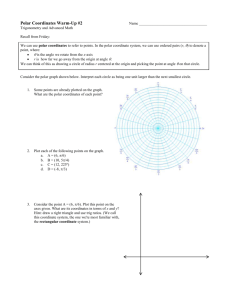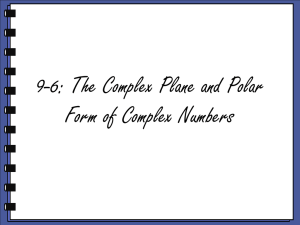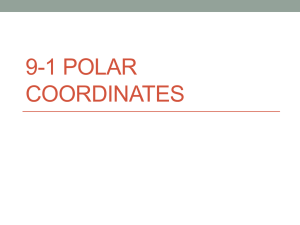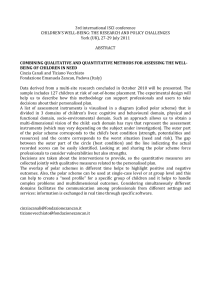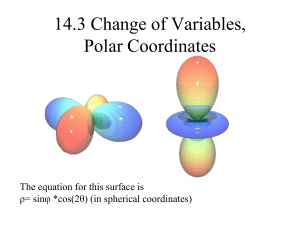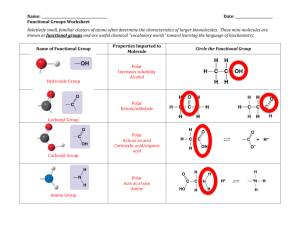Precalculus 6.4, 6.5 Review Name #_____ I can solve problems
advertisement
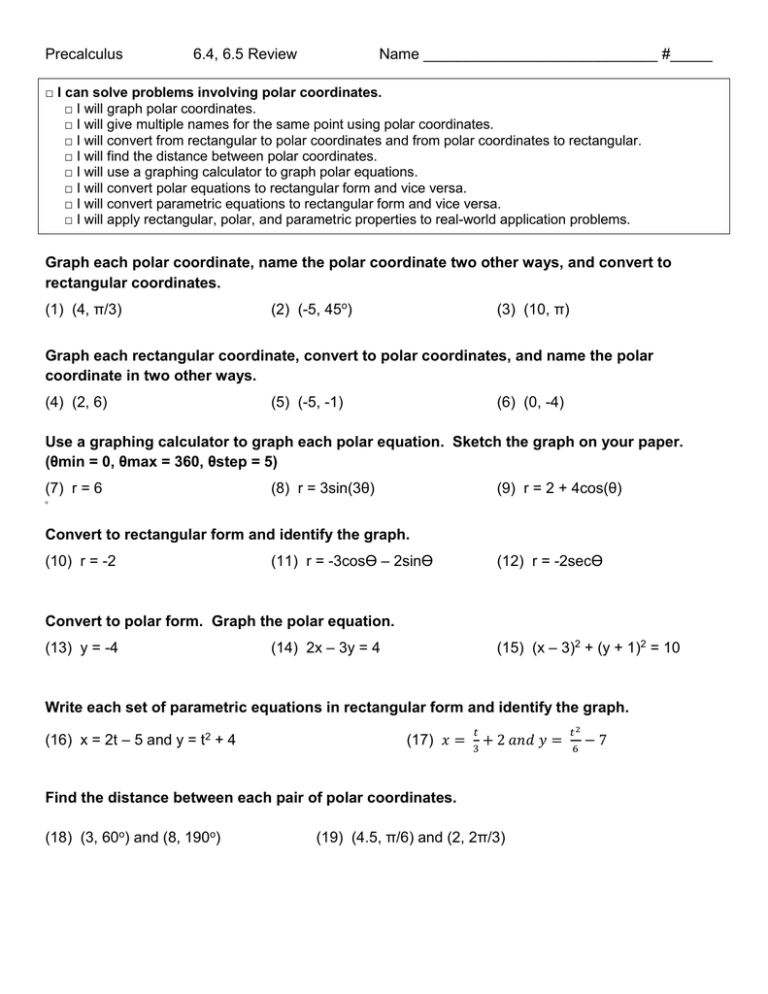
Precalculus 6.4, 6.5 Review Name ____________________________ #_____ □ I can solve problems involving polar coordinates. □ I will graph polar coordinates. □ I will give multiple names for the same point using polar coordinates. □ I will convert from rectangular to polar coordinates and from polar coordinates to rectangular. □ I will find the distance between polar coordinates. □ I will use a graphing calculator to graph polar equations. □ I will convert polar equations to rectangular form and vice versa. □ I will convert parametric equations to rectangular form and vice versa. □ I will apply rectangular, polar, and parametric properties to real-world application problems. Graph each polar coordinate, name the polar coordinate two other ways, and convert to rectangular coordinates. (1) (4, π/3) (3) (10, π) (2) (-5, 45o) Graph each rectangular coordinate, convert to polar coordinates, and name the polar coordinate in two other ways. (4) (2, 6) (5) (-5, -1) (6) (0, -4) Use a graphing calculator to graph each polar equation. Sketch the graph on your paper. (θmin = 0, θmax = 360, θstep = 5) (7) r = 6 (8) r = 3sin(3θ) (9) r = 2 + 4cos(θ) o Convert to rectangular form and identify the graph. (10) r = -2 (11) r = -3cosƟ – 2sinƟ (12) r = -2secƟ Convert to polar form. Graph the polar equation. (13) y = -4 (14) 2x – 3y = 4 (15) (x – 3)2 + (y + 1)2 = 10 Write each set of parametric equations in rectangular form and identify the graph. (16) x = 2t – 5 and y = t2 + 4 (17) 𝑥 = 𝑡 + 2 𝑎𝑛𝑑 𝑦 = 3 Find the distance between each pair of polar coordinates. (18) (3, 60o) and (8, 190o) (19) (4.5, π/6) and (2, 2π/3) 𝑡2 6 −7
